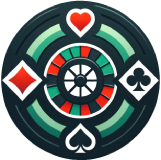The Psychology of Gambling: Understanding What Drives Us to Bet
Gambling activities have an almost universal appeal that persists across cultures and generations. These games of chance embed themselves deeply into societies, embedding into our media, conversations, and social lives. With the rise of online casinos and betting, gambling is now more accessible than ever. This warrants a deeper exploration into what truly compels people to repeatedly stake money on games with unpredictable outcomes. By uncovering the psychological nuances that enable gambling to captivate audiences ranging from casual weekend poker players to serious sports bettors, we can foster healthier perspectives and habits around this popular pastime.
The Lure of Uncertainty
On a fundamental level, gambling transfixes people because of the sheer uncertainty involved. With their whirring icons, spinning wheels, and fluctuating prize multipliers, games like Premier Bet Aviator epitomize randomness. Each wager brings the promise of instantly vaulting into riches beyond one’s usual means. This radical unknown has proven irresistible time and again. The novelty and variability activates innate human curiosity while allowing our imagination to run wild with possibilities.
Neurologically, uncertainty releases dopamine, the motivation and pleasure neurotransmitter. The anticipation consuming gamblers as they watch a slot machine wheel decelerate or lottery balls cycle is fueled by dopamine. This wanting transforms into an even more euphoric rush when a favorable outcome materializes, reinforcing the gambling urge. Even near wins nurture some dopamine release, partially explaining why losing gamblers often feel driven to continue playing.
The Role of Dopamine in Gambling
While dopamine fuels motivation, the satisfaction felt upon winning also stems from dopamine flooding the brain’s reward pathway. This surge of pleasure chemicals including dopamine reinforces the gambler’s actions, compelling them to repeat the process.
Just as Pavlov’s dogs associated a bell chime with incoming meat powder until salivating automatically at the trigger cue, gamblers forge neurological links between betting activities and dopamine release. Visual and audio features like bright colors, celebratory jingles, and flashing graphics that accompany payouts further cement gambling’s ties to pleasure. In some cases, these formerly positive stimuli continue driving compulsive gambling even when wins become scarce or finances dwindle gravely.
Illusions of Control and Superstition
Cognitive distortions also heavily influence gambling behavior. Gamblers often harbor the false belief that they can apply strategy to sway purely chance-based outcomes. These illusions of control leads players to construct intricate betting systems, seeking patterns in random sequences. In reality no mortal skill alters the fixed odds set by each game’s parameters.
Relatedly, rituals and superstitions pervade gambling culture. Specific numbers, colors, items of clothing, or customs get deemed lucky charms. While such traditions hold cultural or sentimental relevance, logically they cannot impact the randomness underlying each card draw or dice roll. Yet clinging to these false notions of control provides comforting feelings of order and personal influence amid stark uncertainty.
Social and Cultural Influences
Beyond psychological underpinnings, sociocultural factors greatly impact gambling’s popularity. Messages and imagery promoting this activity bombard society daily across countless channels, normalizing betting as a fixture of mainstream recreation and entertainment. Commercials model sports betting as an integral part of fandom while friends discuss big scores or losses. Pop culture further glamorizes big games like poker or blackjack into styles of savvy sophistication.
Our profoundly social human wiring makes resisting such collectively reinforced activities challenging. Explicit peer encouragement makes refusing another round of drinks or one more hand dealt difficult after bonding through the shared experience. Generational gambling traditions passed within families or tight-knit communities also pressure reluctant individuals feeling loath to break a custom.
Escapism and Gambling
Gambling’s ability to absorb one’s complete mental focus also increase its appeal as a temporary escape mechanism. While playing, gamblers enter an immersive alternate reality completely disconnected from real-life stresses. The rest of the world and its problems melt away, letting players abandon themselves to fate for better or worse based on the whims of chance alone. This transportation into a simpler cosmos governed purely by luck rather than obligations momentarily masks nagging worries.
Such complete distraction offers those struggling with stressful situations or difficult emotions a potent mechanism to mentally unplug from troubles even if the relief remains superficial and fleeting. Nevertheless, chronic escapists deprived of healthier coping outlets may gravitate towards increasingly heavy gambling. The activity’s biochemical highs and total absorption provides a potent balm against facing problems which inevitably remain once the last bet gets settled.
Recognizing Problem Gambling
For most, gambling poses little harm as a casual social pastime and thrilling side entertainment. But psychology demonstrates our human vulnerability to its biochemical pull. As gambling opportunities and social approval surge, each year sees more cases of obsessive gambling spiraling into grim financial, professional, familial, and emotional consequences.
Problem gambling habits often stem from the interaction between biological factors like genetics making certain individuals more dopamine-sensitive with psychological traps like cognitive distortions or illusion of control Errors in thinking fuel irrational beliefs about one’s ability to skillfully predict or influence purely chance outcomes. Desperation then fuels increasingly reckless bets despite grave consequences already realized from substantial losses of time, money, integrity, and life stability.
Psychological addiction occurs as gambling hijacks the brain’s reward system. Attempts to stop activate fear centers and neurotransmitter dysfunction similar to substance withdrawal. This can drive relapse and continuation of the destructive cycle without adequate support.
Strategies for Responsible Gambling
Those wishing to gamble responsibly can utilize various approaches to control problematic habits. Setting predefined time and budget limits before play commences helps one withdraw automatically before getting carried away by excitement. Consciously tracking time and cash spent also maintains self-awareness and accountability during the immersive gambling experience.
Understanding odds and randomness counteracts harmful illusions that skills or superstitions somehow improve the uncontrollable likelihood of winning. Personal rules like avoiding alcohol use while gambling limits risky behaviors. Identifying cognitive distortions and irrational superstitions marks the first step in negating and preventing them. Gamblers looking to play more deliberately should mentally separate gambling entertainment budgets from vital living expenses less the former jeopardize the latter. With discipline and wisdom, gambling can hold a benign spot as lighthearted diversion rather than develop into a destructive obsession eroding one’s finances, relationships, integrity, and life stability.
To Sum Up
Digging deeper into gambling reveals a complex interplay of biochemical and emotional processes beyond simplistic views of this pastime as solely recreation, vice, or financial decision-making. The uncertain nature of such games taps into innate human traits seeking stimulation and escape while activating neurology that can reinforce harmful behaviors when left unchecked.
But despite gambling’s prevalence across individuals and societies, most retain control over their engagement. By shedding light on the psychological forces inspiring people to repeatedly bet money on unpredictable outcomes, we can develop healthy perspectives on gambling in modern society. Those already struggling with destructive habits may find motivation to reassess their self-awareness around gambling triggers and seek help restoring balance rather than allowing this formerly pleasurable activity to continue hijacking their neurology and jeopardizing their well-being.
FAQ
-
What drives people to gamble?
People are driven to gamble by a multitude of psychological factors, such as the thrill of risk-taking, the hope of a significant financial return, and the excitement of the game itself.
-
What is gambling addiction?
Gambling addiction, also known as compulsive gambling, is a type of impulse-control disorder. Individuals with a gambling addiction cannot control the impulse to gamble, even when they know their gambling is hurting themselves or their loved ones.
-
How can one seek help for a gambling addiction?
There are various resources available for those struggling with a gambling addiction. This includes therapy and counselling services, support groups, and self-help techniques. Always consult with a healthcare professional for advice tailored to your situation.
-
What are some signs that someone may have a gambling problem?
Signs of a potential gambling problem include spending excessive amounts of time and money on gambling, lying about gambling habits, and feeling guilty or ashamed about their behaviour. It is crucial to seek help if you or a loved one show these signs.


